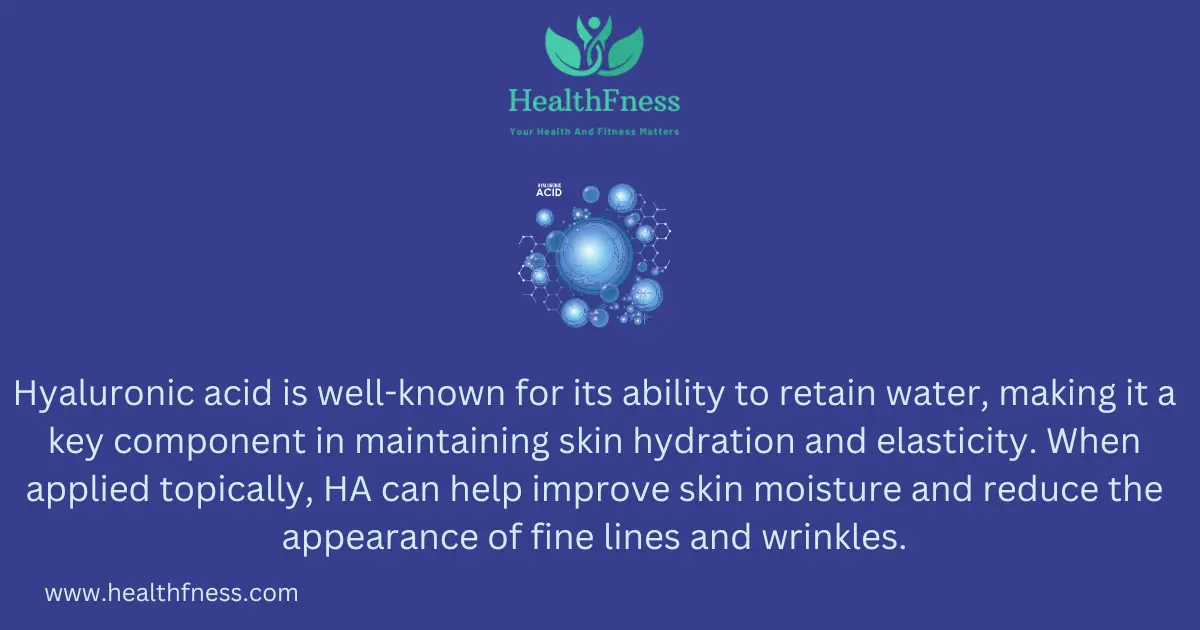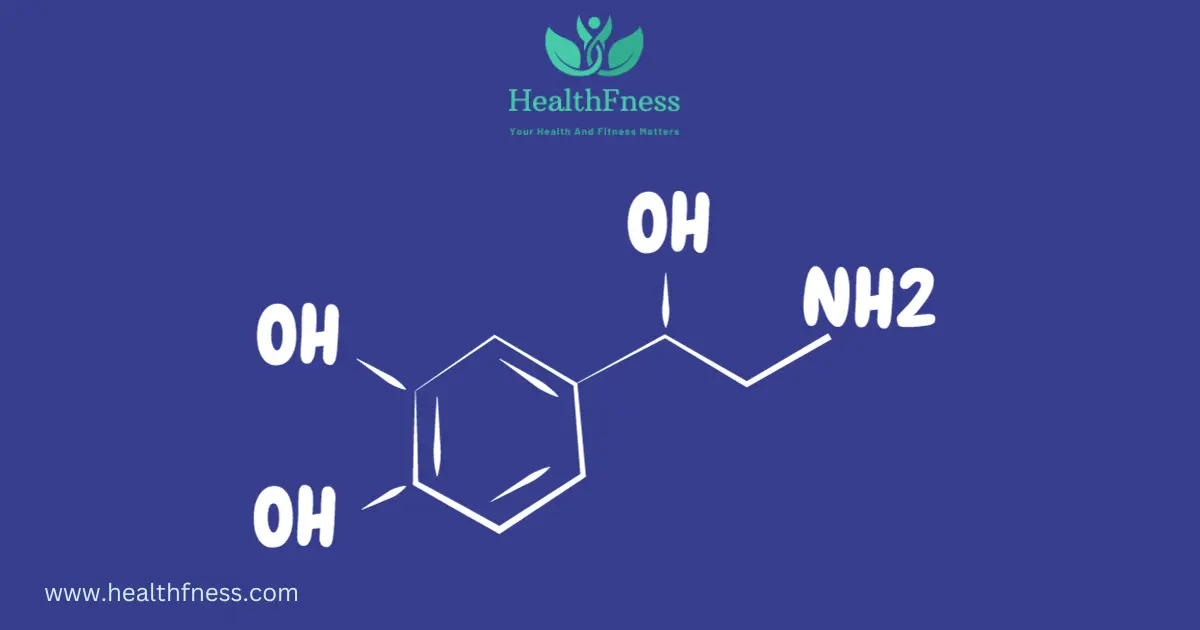To understand if hyaluronic acid boosts estrogen, we need to know what each of them does.
Hyaluronic acid is a natural substance (built naturally) in our bodies that helps keep our skin hydrated.
It’s super popular in skincare because it’s great at holding onto moisture and is used in moisturizers.
On the other hand,
estrogen is a hormone mostly about female reproductive health.
So let’s explore Does hyaluronic acid increase estrogen?
Does Hyaluronic Acid Increase Estrogen? Exploring the Link
Many people wonder if using hyaluronic acid can increase estrogen levels in the body. To find out, we need to look at scientific research.
Some studies suggest that hyaluronic acid might have interactions with estrogen receptors in the body. These receptors are like little “locks” that estrogen fits into, affecting various functions in the body. When hyaluronic acid interacts with these receptors, it could potentially influence estrogen activity.
One study published in the Journal of Biomedical Materials Research found that hyaluronic acid can stimulate estrogen receptor activity in certain cells. However, it’s important to note that this study was conducted in a laboratory setting, and more research is needed to understand how this interaction might affect estrogen levels in the body.
Another study published in the Journal of Endocrinology showed that hyaluronic acid could enhance the effects of estrogen on bone cells. This suggests that hyaluronic acid might have a synergistic relationship with estrogen in certain tissues.
However, it’s essential to approach these findings with caution. While these studies provide valuable insights, they are preliminary and may not fully reflect the complexities of how hyaluronic acid interacts with estrogen in the human body.
In conclusion, the link between hyaluronic acid and estrogen is still being explored by scientists. While some research suggests potential interactions, more studies are needed to fully understand the implications for human health.
Is Hyaluronic Acid an Effective Treatment for Vaginal Dryness?
Yes, hyaluronic acid can be an effective treatment for vaginal dryness. Vaginal dryness happens when the vagina lacks moisture, which can lead to discomfort during sex or daily activities.
Hyaluronic acid is a substance that helps retain moisture, and when applied to the vaginal area, it can hydrate the tissues, relieving dryness and discomfort. It’s available in various forms like gels, creams, or suppositories, and many women find it helpful in managing vaginal dryness. However, it’s essential to consult a healthcare provider before using any new treatment.
Why Does Hyaluronic Acid Work So Well as a Vaginal Moisturizer?
Hyaluronic acid works well as a vaginal moisturizer because it’s really good at holding onto water. When applied to the vaginal area, hyaluronic acid forms a thin layer that locks in moisture, helping to keep the tissues hydrated and reducing dryness.
This makes it easier to feel comfortable during daily activities and sex. Plus, hyaluronic acid is gentle and compatible with the body’s natural chemistry, which makes it a safe and effective choice for many people experiencing vaginal dryness.

Who is Affected by Vaginal Dryness?
Vaginal dryness can affect anyone with a vagina, regardless of age. It’s more common in women who are going through menopause due to hormonal changes, but it can also happen during “breastfeeding, after childbirth, or as a side effect of certain medications or medical conditions.”
Is Hyaluronic Acid Safe for Vaginal Use?
Yes, hyaluronic acid is generally safe for vaginal use. It’s a natural substance found in the body and is well-tolerated by most people. When applied to the vaginal area, hyaluronic acid helps moisturize and hydrate the tissues, relieving dryness and discomfort.
Excellent Advice for Choosing the Best Vaginal Moisturizer
Look for Safe Ingredients
Choose products with safe and gentle ingredients like hyaluronic acid, aloe vera, or vitamin E. Avoid products with harsh chemicals or fragrances that can irritate sensitive vaginal tissues.
Consider Your Needs
Think about whether you prefer a water-based or silicone-based formula. Water-based moisturizers are often preferred for everyday use and are compatible with condoms, while silicone-based ones may last longer and provide more lubrication.
Check pH Balance
Opt for a moisturizer with a pH balance similar to that of the vagina (around 3.8 to 4.5). This helps maintain the natural acidity of the vagina, which is essential for preventing infections and maintaining healthy bacteria.
Consult a Healthcare Provider
If you’re unsure which product is best for you, or if you have any concerns about vaginal health, it’s always a good idea to consult with a healthcare provider. They can offer personalized recommendations based on your individual needs and health history.
Read Reviews
Before purchasing, read reviews from other users to get an idea of the product’s effectiveness and any potential side effects.
Patch Test
If you’re trying a new product for the first time, do a patch test on a small area of skin to check for any adverse reactions before applying it to the vaginal area.
Remember, everyone’s body is different, so what works best for one person may not necessarily work for another. It may take some trial and error to find the right vaginal moisturizer for you.
FAQS
Does estrogen increase hyaluronic acid?
Estrogen indeed participates in the synthesis of hyaluronic acid, potentially exerting an influence on its presence within the body.
Is hyaluronic acid good for menopause?
Hyaluronic acid's moisturizing attributes can offer relief from the prevalent vaginal dryness often experienced during menopause.
Is hyaluronic acid good for a 40-year-old woman?
Hyaluronic acid can benefit individuals of various ages, including 40-year-old women, by promoting skin hydration and vaginal health.
Who should avoid hyaluronic acid?
Indeed, individuals who are conscious of their chemical sensitivities or allergies should steer clear of its usage. If you harbor any concerns, seeking counsel from a healthcare practitioner is a prudent course of action.
Does increased estrogen improve skin?
Higher estrogen levels may contribute to improved skin hydration and elasticity.
Does estrogen make your face glow?
Estrogen can influence skin health, potentially contributing to a radiant complexion.
Does estrogen plump your face?
Estrogen may play a role in maintaining skin's plumpness and youthful appearance.
Does estrogen increase beauty?
Estrogen's effects on skin health can contribute to a more youthful and vibrant appearance.
What are the negative impacts of hyaluronic acid?
Certainly, while hyaluronic acid is generally regarded as safe, it can trigger mild side effects like redness or itching in specific individuals.
Does collagen boost estrogen?
Collagen and estrogen are separate entities with distinct roles in the body. Collagen primarily contributes to the skin's firmness and structure
Conclusion: Embrace Vaginal Health with Hyaluronic Acid
In conclusion, the query surrounding the potential influence of hyaluronic acid on estrogen levels leads us through a captivating journey of revelations. While it may not directly modulate estrogen, the pivotal role of hyaluronic acid in fostering vaginal health and holistic well-being cannot be underestimated. When addressing any health or skin care concern, it is prudent to seek counsel from healthcare experts for personalized guidance.
The relationship between hyaluronic acid and estrogen remains an intriguing subject under continuous exploration by researchers. Although the precise connection remains partially elusive, the potential merits of hyaluronic acid in bolstering vaginal health and sustaining skin hydration render it a topic of profound interest. In matters of health, consulting healthcare professionals and tailoring choices to individual needs and preferences remains the cornerstone of sound decision-making. Embracing vaginal health and preserving skin hydration constitute essential facets of comprehensive well-being.
For further research, you can explore the following scientific articles:
Topic: Induction of hyaluronic acid synthetase by estrogen in the mouse skin

